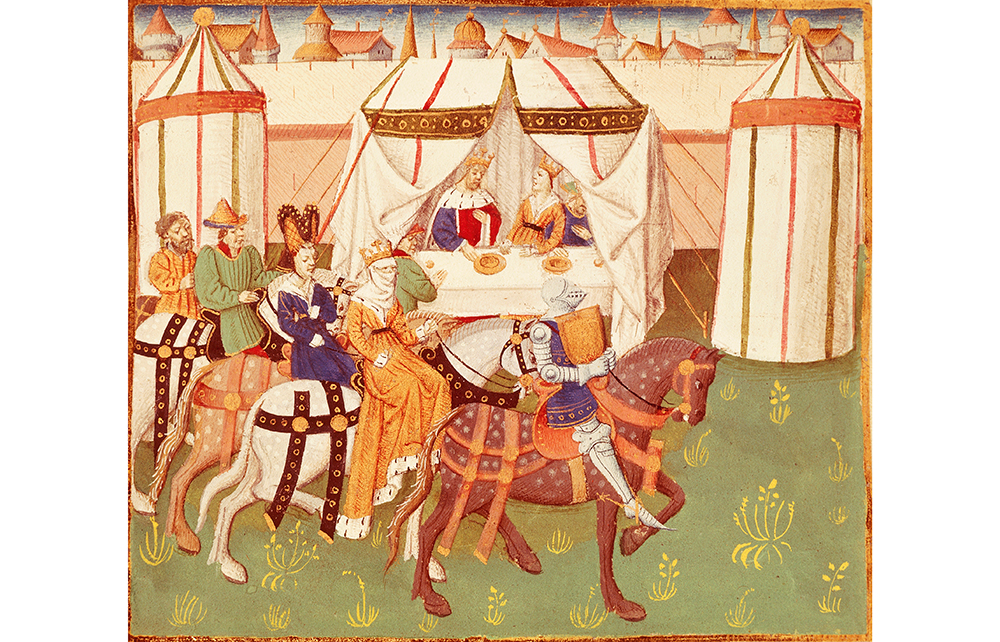Sir Thomas Malory is not much of a knight. He lies; he is lecherous; he is bested in tourneys; he misses battles due to a dicky stomach; he inadvertently causes the deaths of his friends. He is no Sir Lancelot. But he has his talents, chief among them being his ability to spin a yarn, and he has won much renown for his retelling of the legend of King Arthur and his Round Table, later to be published as Le Morte d’Arthur.
Now he has the chance to set his own story straight. Well, straight-ish. A Good Deliverance is a sly and salty fictional account of the life and deeds of Malory, whose real-life record is shrouded in mystery. The story begins in 1468 with the elderly man’s arrest and imprisonment in Newgate Prison. No charges are forthcoming. Fearing the worst, Malory buttonholes the jailor’s son and sits him down to hear ‘the true tale of the deeds of arms and gentle acts of valour of Sir Thomas Malory’. The boy raises his eyebrows.
There are stories of brave knights, beautiful maidens and just kings; of battles at sea and sieges of fortresses; of how Sir Thomas acquitted himself at the Battle of Verneuil, protected the honour of Joan of Arc, and was propositioned by the antipope John XXIII. The tone is knowing and playful. Malory tends to come out of these events less nobly than he thinks, and his attempts at evasion and exaggeration are nicely undercut by the sceptical lad. When told he will be treated to a story, he chortles: ‘Oho! It is not about how innocent you are, is it?’
The atmosphere is enjoyably pungent. The English Channel is ‘a choppy, mud-coloured broth’ with ‘bobbing ordure that not even the tide could shift’; the characters are ‘bandy-legged’ and ‘bun-faced’ with ‘split-pea grins’ and caps ‘the size, shape and colour of a cowpat’. Less satisfying is the novel’s form, which, while necessarily loose and anecdotal, with the sudden interruptions and frequent longeurs afforded by a prison cell, often feels patchy and half-hearted.
Nevertheless, this is a vivid and amusing bringing to life of an elusive historical figure that puts on a good show for its audience. The boy yawns and scoffs and grows impatient, but accounts it a tale worth hearing. I would certainly second that.







Comments